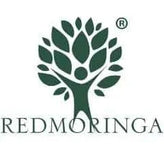The bestsellers for Moringa lovers
-
Original priceOriginal price 19,99 €19,99 €Current price 19,99 €
-
Original priceOriginal price 19,99 €19,99 €Current price 19,99 €
-
Original priceOriginal price 19,99 €19,99 €Current price 19,99 €
-
Original priceOriginal price 19,99 €19,99 €Current price 19,99 €
-
Original priceOriginal price 19,99 €19,99 €Current price 19,99 €
-
Original priceOriginal price 19,99 €19,99 €Current price 19,99 €




